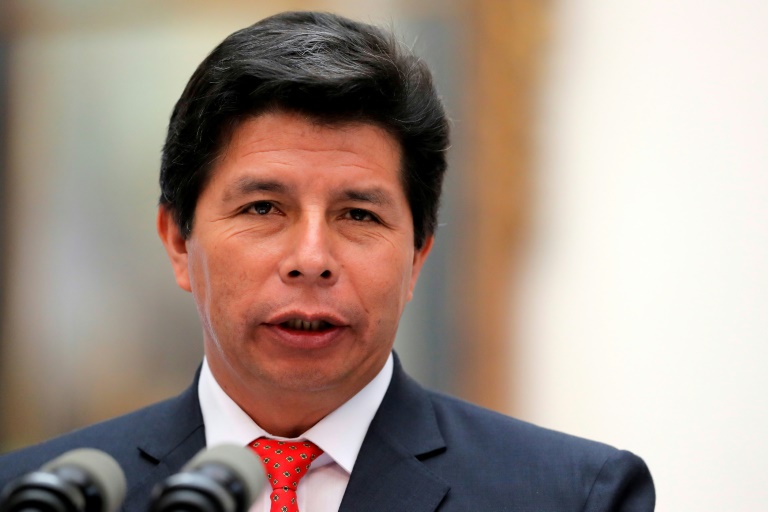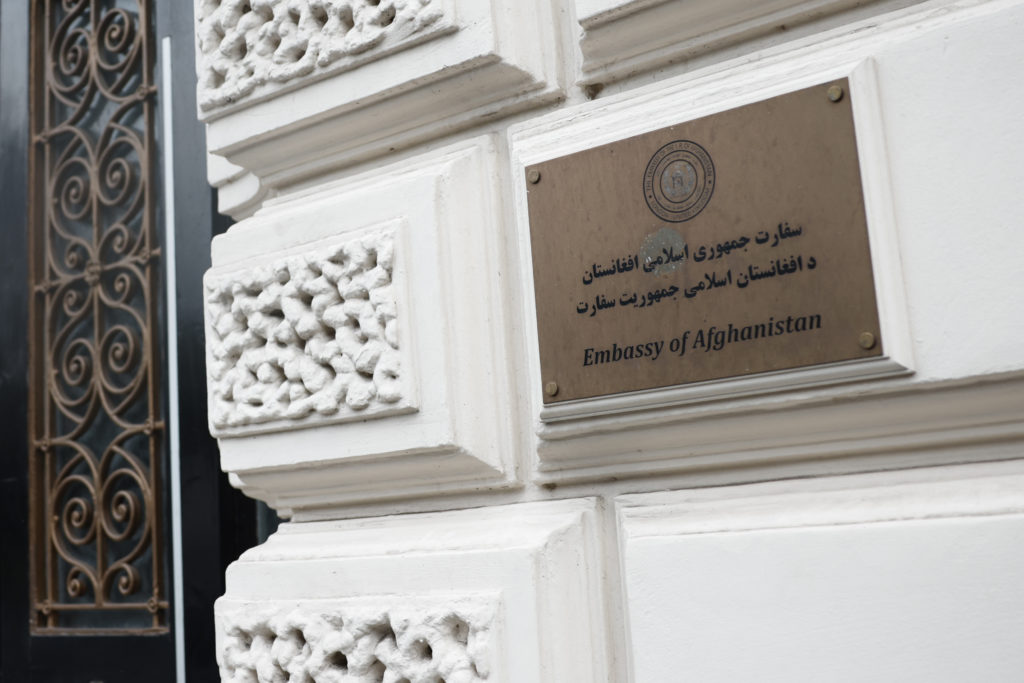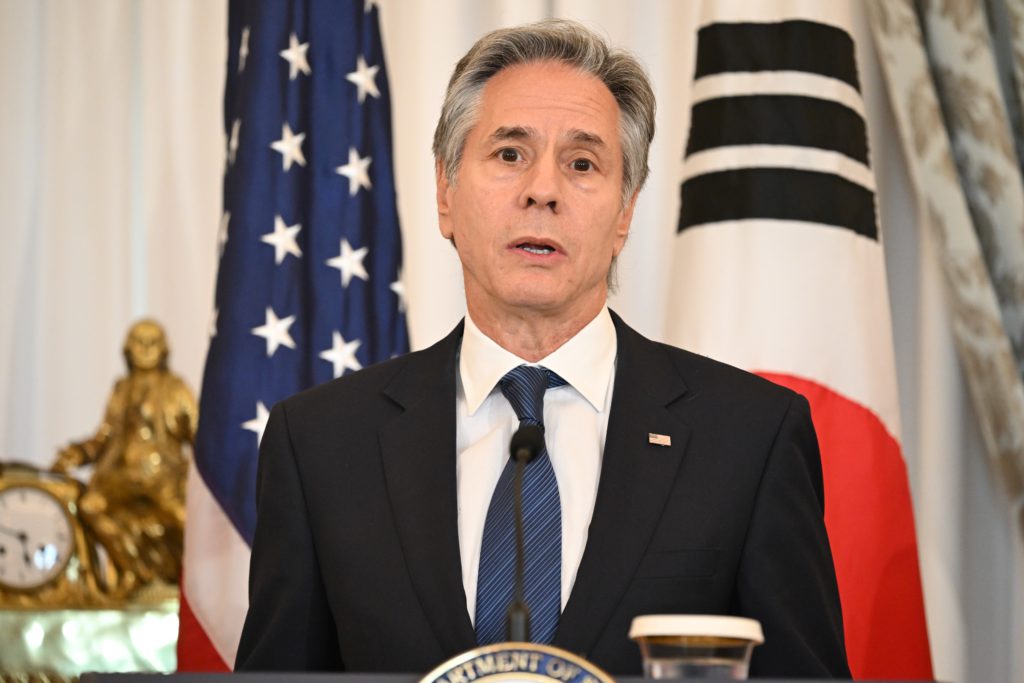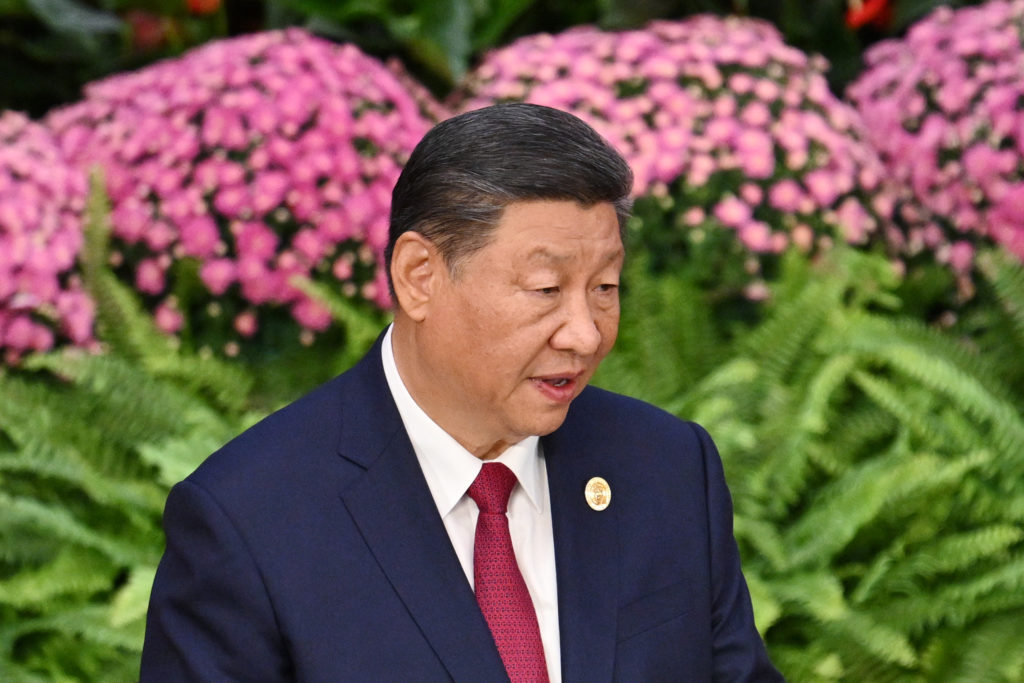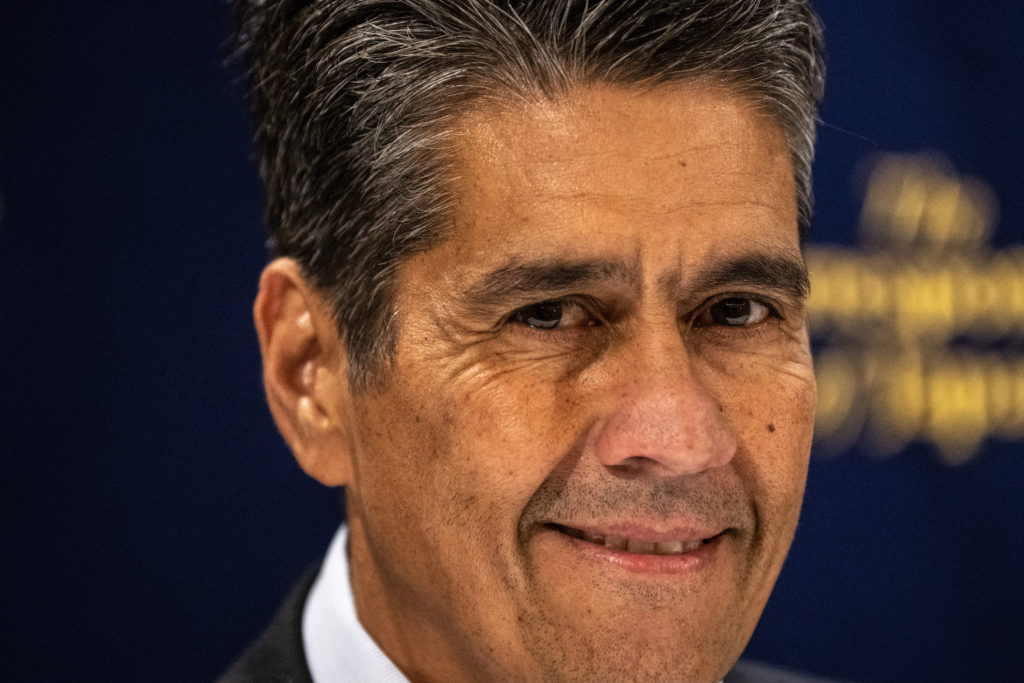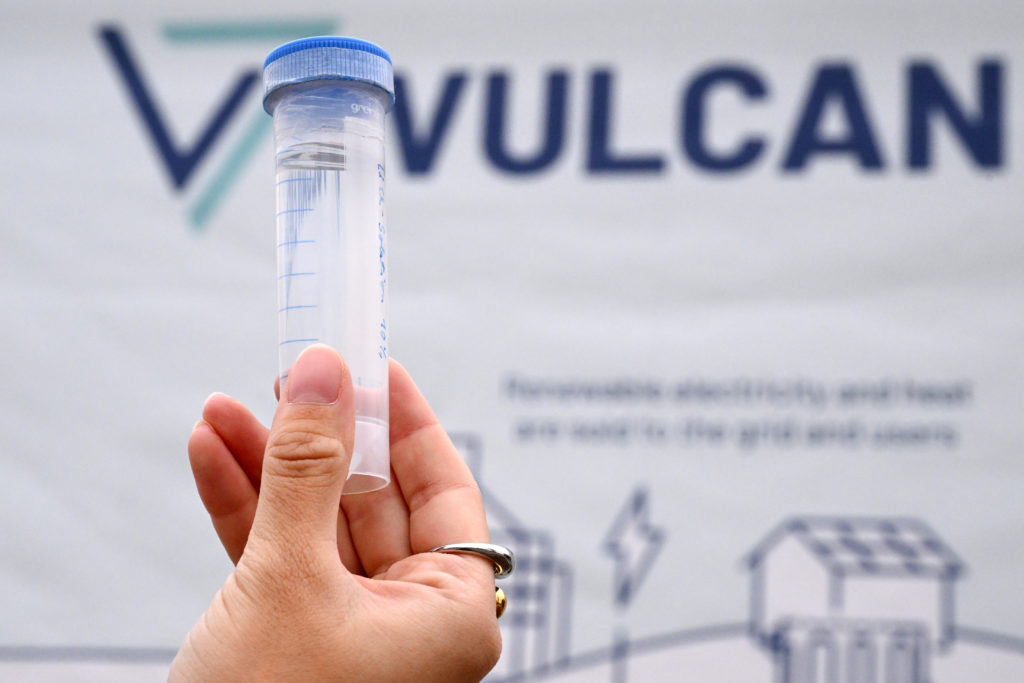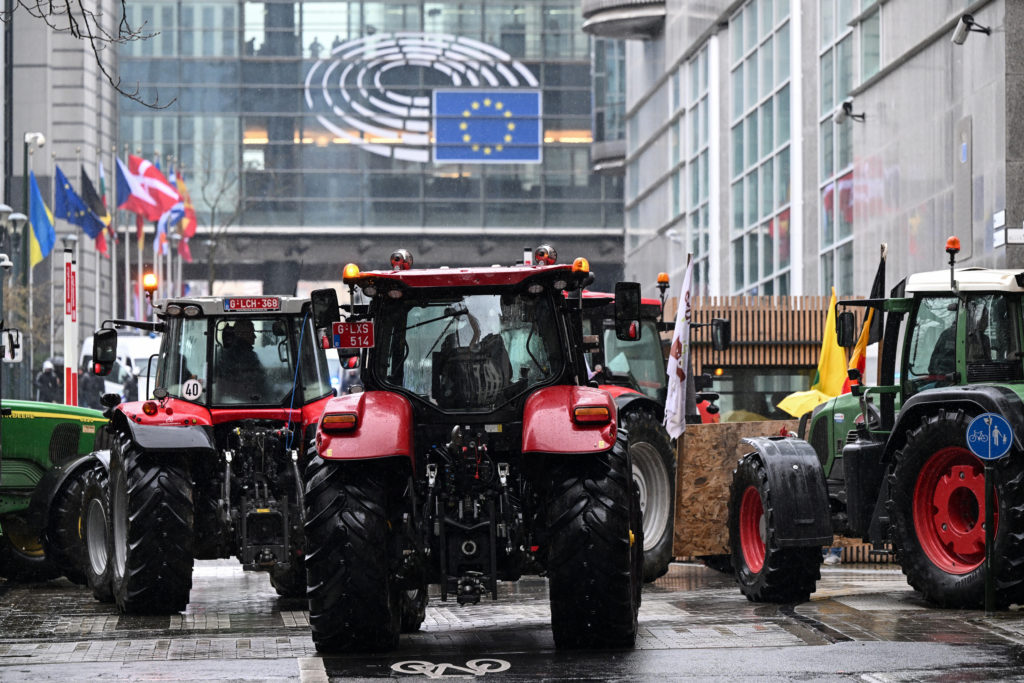Peru's former president Pedro Castillo was ousted by lawmakers after he tried to dissolve congress and rule by decree
A court in Peru rejected on Tuesday an appeal by former president Pedro Castillo to be freed from detention on charges of rebellion and conspiracy, as officials warned protests demanding his release could spiral out of control.
Prosecutors late Tuesday filed a request to hold Castillo in pre-trial detention for 18 months, marking the formal start of the investigation against him, a prosecution source told AFP.
Castillo, who was removed from office and arrested after attempting to dissolve parliament and rule by decree, had earlier told the court he would “never give up” his cause.
Castillo also called on police and the military to “stop killing” protesters who continue to demand his release and reinstatement, after violent clashes between security forces and demonstrators left seven people dead in recent days.
But Judge Cesar San Martin rejected his appeal for release following a virtual hearing.
Castillo’s demise was rapid after he had attempted to sideline parliament last Wednesday just hours before it was due to hold a third impeachment vote against him. Castillo and his family were being investigated for alleged corruption.
Congress went ahead with its vote and overwhelmingly decided to impeach him for “moral incapacity.”
He was provisionally detained for seven days.
Within hours Castillo’s vice president, Dina Boluarte, a former prosecutor, was sworn in as his successor.
“I will never give up and abandon this popular cause that brought me here,” the leftist Castillo said during Tuesday’s hearing.
“From here I would like to urge the armed forces and national police to lay down their arms and stop killing these people thirsty for justice.”
He said his arrest was unjust and arbitrary.
“I am not a thief, a rapist, corrupt or a thug,” he added, before being interrupted by the judge who asked him to keep to legal arguments.
– Seven dead –
Castillo’s supporters began protesting almost immediately after his arrest, with demonstrations escalating on Sunday when two people were killed in clashes between demonstrators and security forces.
Another five people died Monday in more violent clashes.
Six of the seven deaths have been in the Apurimac region, where Boluarte was born.
The other occurred in Peru’s second largest city Arequipa as police cleared hundreds of protesters from the airport, where they had set up barricades of burning tires, logs and rocks.
“This is a very serious social convulsion, we fear that it will lead to an uprising because there are people calling for an insurrection, who are asking to take up arms,” rights ombudsman Eliana Revollar told AFP.
She said more than 200 people have been injured in the unrest.
Boluarte called for “calm, peace, that we can live together as siblings” and said she would consider extending the state of emergency already declared in flashpoint areas to a national level.
On Sunday she also vowed to bring forward elections from 2026 to 2024 in a bid to ease tensions.
The government on Monday fired the 26 regional prefects who had been appointed by Castillo, accusing them of “inciting protests.”
The country’s right-leaning Congress convened an emergency session Sunday to discuss the crisis, but it was suspended after fighting broke out.
Mexico’s leftist President Andres Manuel Lopez Obrador gave Castillo his backing Tuesday, insisting his country still recognizes him as president.
A day earlier, the leftist governments of Mexico, Argentina, Colombia and Bolivia released a joint statement saying Castillo had been “the victim of antidemocratic harassment” since his election.
Peru’s foreign ministry responded by insisting that Congress had acted in line with the constitution.
– State of emergency –
The government declared a state of emergency in the regions of Arequipa and Ica, Defence Minister Alberto Otarola said Tuesday evening, a move that allows the military to be deployed alongside police.
In Lima, dozens of demonstrators threw stones at the police on Tuesday evening as they tried to reach Congress, with the police firing tear gas to disperse them.
Earlier in the day, protests had persisted with roadblocks set up across several regions, police said.
The worst-hit areas were in the north and south, including the region of Cusco, a tourism hotspot that is home to the Machu Picchu Inca citadel, and Arequipa.
Indigenous and agrarian organizations have called an indefinite strike to begin Tuesday.
That forced the train service between the city of Cusco and Machu Picchu to be suspended, the rail operator said.
Cusco airport was also shut overnight due to attempts by protesters to get inside.
“We demand the dissolution of Congress and the immediate resignation of Dina Boluarte,” Hugo Maquera, a local official who participated in a protest blocking the Puno international bridge on the Bolivian border, told AFP.
With his background as a rural teacher and union leader, and with little contact with the nation’s elites, Castillo has always drawn his strongest support from Andean regions, while struggling to find backing in coastal Lima.
Peru is now on its sixth president since 2016.
Castillo’s 17-month rule was overshadowed by six investigations against him and his family, mass protests demanding his removal, and a power struggle with the opposition-backed Congress.

